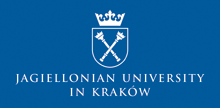Speaker
Description
Proton computed tomography (pCT) is an imaging modality for generation of accurate relative-stopping-power images. Such images are used in the context of particle therapy for treatment-planning and dose-recalculation according to the anatomy-of-the-day. A recently proposed method for fluence-modulated pCT (FMpCT) imaging may further reduce imaging dose while maintaining image quality within a region-of-interest, i.e. the treatment beam path.
To enable future FMpCT acquisitions we present results of a detailed Monte Carlo study of contributions to image noise of the phase II prototype pCT scanner. The scanner was modelled using the Geant4 framework taking into account quenching effects in the scintillators of the energy detector and a beam model from experimental data of the tracking detectors. Based on an image guide, variance levels at the detector can be calculated and disentangled into contributions from various physical effects, such as multiple Coulomb scattering (MCS) or energy straggling. An important noise contribution was the object-specific interplay of heterogeneities and MCS. Finally, accuracy of the variance prediction was compared to measurements.

